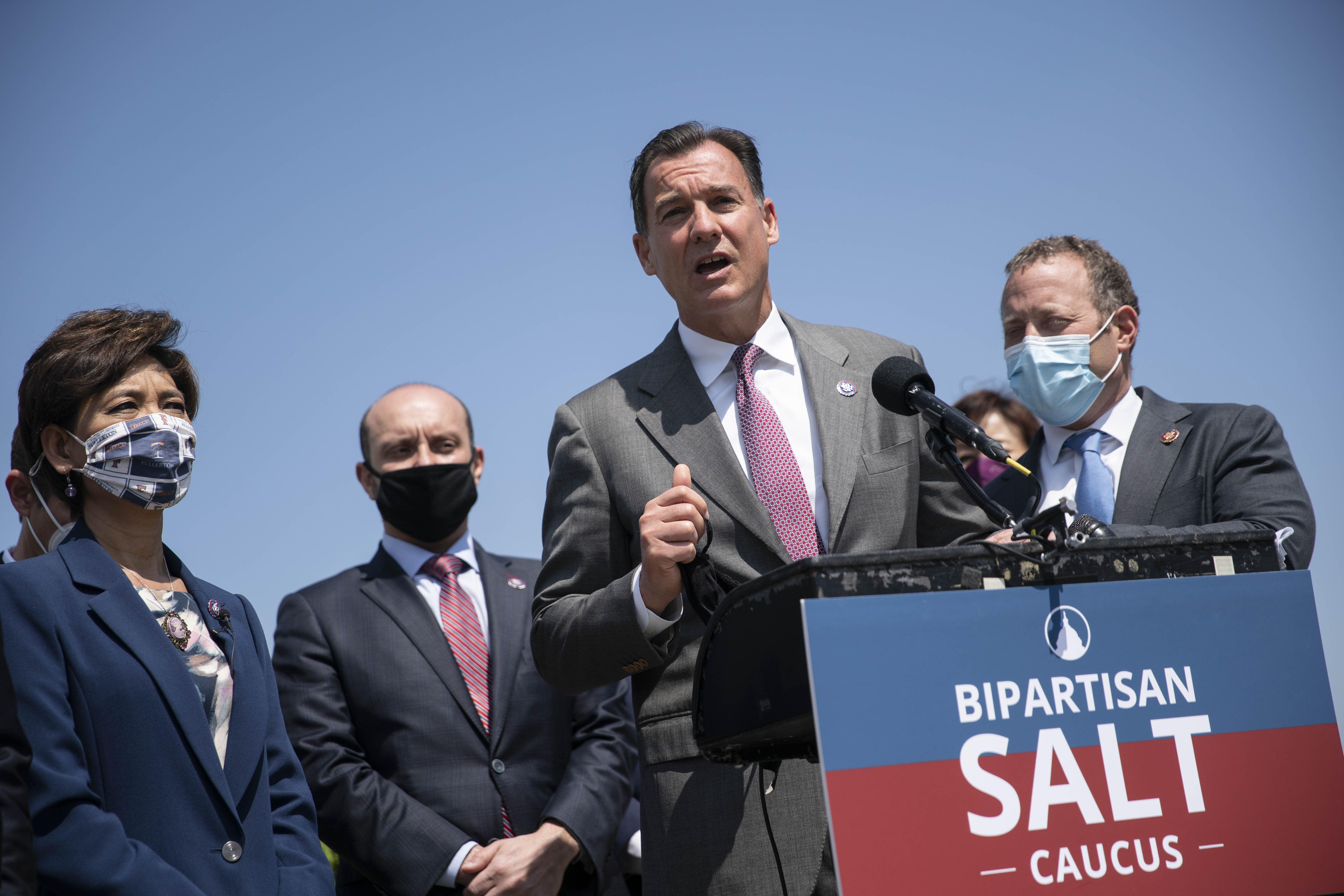
Rep. Tom Suozzi, D-N.Y., speaks during a news conference announcing the State and Local Taxes (SALT) Caucus outside the U.S. Capitol on April 15, 2021.
Sarah Silbiger | Bloomberg | Getty Images
Some House Democrats have threatened to block Build Back Better legislation if the broken-up package drops relief for the $10,000 limit on the federal deduction for state and local taxes, known as SALT.
The $1.75 trillion social and climate spending plan hit a roadblock in December when moderate Sen. Joe Manchin, D-W.Va., said he wouldn’t vote for it. The bill needs support from every Democratic Senator as part of the budget reconciliation process.
However, President Joe Biden this week said Democrats will likely have to break up the legislation and try to pass parts of the bill, expressing optimism for climate policy and early childhood education.
“I’m confident we can get pieces, big chunks of the Build Back Better law signed into law,” he said at a news conference on Wednesday.
More from Personal Finance:
SALT deduction relief may be in peril as Build Back Better stalls
House Democrats want to raise SALT deduction cap to $80,000. What it means for your taxes
These states offer a workaround for the SALT deduction limit
But the president’s agenda may face another hurdle if the legislation doesn’t include changes to the $10,000 SALT cap, a key issue for some lawmakers in high-tax states, such as California, New Jersey and New York.
The issue has been a pain point since enacted as part of former president Donald Trump‘s 2017 tax overhaul because filers who itemize deductions on their federal return can’t write off more than $10,000 of state and local taxes.
Without support from Senate Republicans, SALT relief is unlikely to make it through Congress as a standalone bill.
“SALT remains a top priority,” said Reps. Tom Suozzi, D-N.Y.; Josh Gottheimer, D-N.J.; and Mikie Sherrill, D-N.J., in a joint statement.
“We support the president’s agenda, and if there are any efforts that include a change in the tax code, then a SALT fix must be part of it. No SALT, no deal,” they said.
House Democrats in November passed a spending package boosting the SALT cap to $80,000 from 2021 through 2030 before dropping it back to $10,000 in 2031.
However, it’s been a controversial provision, with opponents saying it’s primarily a write-off for affluent Americans. More than 90% of the benefit may flow to the top 20% of earners, according to the Tax Policy Center.
“The current House version of SALT gives millionaires thousands in cash, while people who make less than about $100,000 per year get less than $20 on average,” tweeted Rep. Jared Golden, D-Maine, who voted against the bill.
Still, with narrow control over the House, Democrats may need votes from SALT relief supporters. But without a deal, there may not be changes until the provision sunsets in 2026.
“I think [the House proposal] will be scaled back,” Howard Gleckman, senior fellow at the Urban-Brookings Tax Policy Center, has told CNBC. “But I think they realize they have to provide something for those House Democrats who represent wealthy, suburban districts.”




